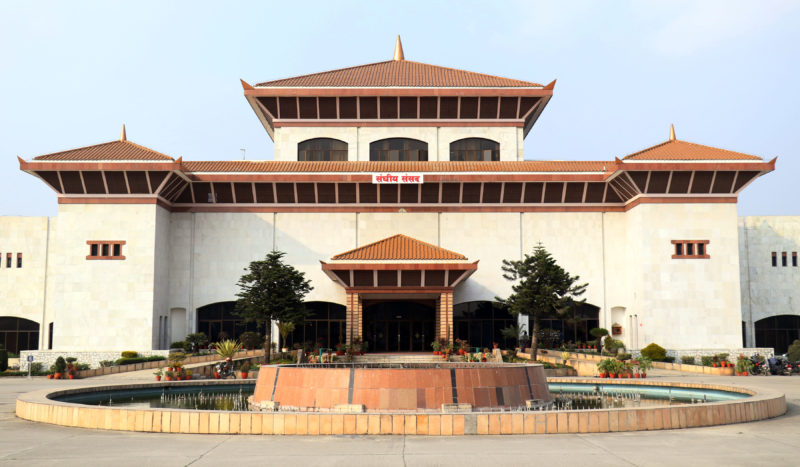House endorses two crucial bills related to police force
Kathmandu, August 11
The House of Representatives today unanimously endorsed two crucial bills on management and adjustment of police personnel in a federal set-up which, once approved by the upper house, will pave the way for provincial governments to enact their own laws to recruit and manage the police force.
The two bills are: Police Personnel Adjustment Bill and Bill to Govern the Process of Operation, Supervision and Coordination of Nepal Police and Provincial Police. The Police Personnel Adjustment Bill lays the groundwork for transfer of police personnel from the centre to provinces and benefits police personnel will be entitled to once they are transferred. The other bill spells out jurisdiction of federal and provincial police and management of police force in a federal structure.
Both the bills were unanimously approved by the lower house after they were amended as per recommendations made by lawmakers. The bills will now be forwarded to the National Assembly for approval before they are signed into laws by President Bidhya Devi Bhandari.
Both the bills state that the deputy inspector general deployed by the federal government will lead the provincial police. DIGs, as well as senior superintendent of police and superintendent of police, deployed in the provinces can be transferred by the federal government after taking consent from the respective provincial government’s ministry of internal affairs, states the Police Personnel Adjustment Bill. But in the future, provincial governments will have the final say on transfer of superintendents of police and senior superintendents of police. However, provincial governments can mobilise DIGs, SSPs and SPs to execute various tasks via their ministry of internal affairs.
The Police Personnel Adjustment Bill gives authorises centre to transfer police personnel ranking from deputy superintendent of police and below to the provinces to set up the provincial police force. Police officials opting for adjustment at the provincial level will be awarded two additional grades and will not see any reduction in salary or facilities they are currently entitled to, states the bill.
The central government is planning to transfer around 55,000 police personnel to seven provinces and retain around 20,000 police personnel at the centre.
Federal parliament’s lawmakers had demanded one-post promotion for police personnel who opted for adjustment. But Home Minister Thapa said it would not be possible to promote police personnel in that manner.
The Bill to Govern the Process of Operation, Supervision and Coordination of Nepal Police and Provincial Police states that provincial police should work in coordination with chief district officers to maintain peace and security in their respective districts. If provinces do not have adequate police personnel to maintain peace and security they can ask the centre for more, adds the bill. The federal government can then request neighbouring provinces to supply additional police personnel.
Jurisdiction of central police
- Cases of sedition; offences related to immigration, citizenship, passport, terrorism and human trafficking; cyber, organisational crime
- Cases in which more than one province is involved
- Cross-border crime
- Cases directed to federal police by a ministry or court
Jurisdiction of provincial police
- Maintain peace, security within the province
- Collect information to reduce crime rate
- Cases in which the government is plaintiff
- Cases that do not fall under the jurisdiction of federal police






